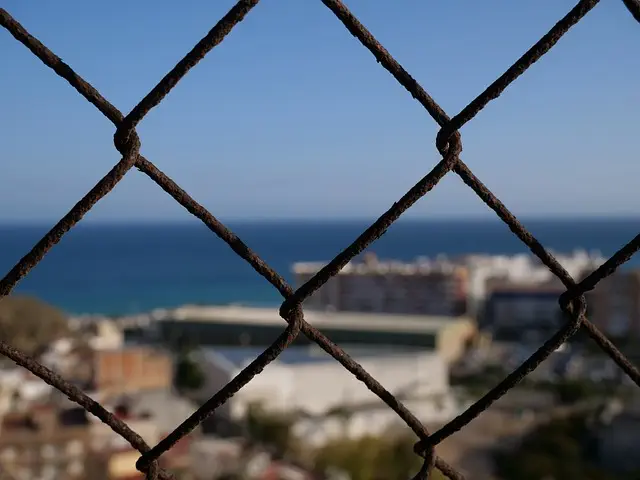Maeng Da Kratom, a strain of Mitragyna speciosa, is recognized for its unique alkaloid composition and distinct stimulant and sedative effects. While it's not explicitly banned in Brazil, its legal status is ambiguous at the federal level due to a lack of clear regulations, leading to a patchwork of local laws across the country. Users must be vigilant about the specific legalities in their region within Brazil, as legislative changes can impact the availability of Maeng Da Kratom Powder. It's essential for consumers to stay informed and adhere to local regulations, considering the ongoing debates and varying stances on kratom's legality globally, including in Brazil. The importance of purchasing from reputable vendors who ensure product quality and compliance with legal standards cannot be overstated, given the significant influence of Maeng Da Kratom on health and the dynamic nature of its legal status. Users should also consult healthcare professionals and follow recommended dosages to ensure safe use.
Maeng Da Kratom Powder has emerged as a focus of interest within herbal supplement communities, owing to its distinctive alkaloid profile and multifaceted effects. This article delves into the potency of Maeng Da, exploring its botanical origins, user experiences, and the complex legal status it holds in various regions, including Brazil—a key point of inquiry for many users. We will navigate through its composition, effects, and the nuances of its legality, providing a comprehensive guide on how to responsibly source and use Maeng Da Kratom Powder. Is Kratom Legal in Brazil? This question and more are addressed to inform consumers and guide regulators.
- Unveiling the Potency of Maeng Da Kratom Powder: An Overview
- Maeng Da Kratom's Botanical Profile: Origins and Composition
- The Effects and Experience of Maeng Da: A User Perspective
- Legal Landscape: The Status of Kratom in Various Jurisdictions, Including Brazil (Is Kratom Legal in Brazil?)
- Sourcing and Using Maeng Da Kratom Powder Responsibly: Tips for Consumers and Considerations for Regulators
Unveiling the Potency of Maeng Da Kratom Powder: An Overview

Maeng Da Kratom Powder, a derivative from the Mitragyna speciosa tree, has garnered attention for its distinct potency and effects. Native to Southeast Asia, specifically Thailand, this strain is celebrated for its balanced alkaloid profile which includes mitraphylline and 7-hydroxymitragynine, compounds believed to contribute to its unique properties. The potency of Maeng Da Kratom is such that it’s often sought after by individuals looking for a more pronounced experience compared to other kratom strains. Its leaves are traditionally dried and ground into a fine powder, which can then be ingested in various forms, from capsules to teas. The effects of Maeng Da are diverse, ranging from stimulating energy levels to providing calming and pain-relieving sensations, making it a versatile option for consumers.
In the context of legality, questions regarding “Is kratom legal in Brazil?” are common among users and enthusiasts. As of recent updates, kratom is not explicitly prohibited in Brazil; however, its status is somewhat ambiguous due to the lack of clear regulations at the federal level. This means that while it may be legally obtainable, the importation and sale of kratom are subject to local laws and regulations, which can vary by region within the country. Users interested in purchasing Maeng Da Kratom Powder should exercise caution and stay informed about the evolving legal landscape, as changes in legislation could impact access to this product. It’s advisable for consumers to verify the current legal status of kratom in their specific jurisdiction before purchasing or using it.
Maeng Da Kratom's Botanical Profile: Origins and Composition

Maeng Da Kratom, a strain of Mitragyna speciosa, hails from the dense forests of Southeast Asia, primarily in Thailand where it has been traditionally used for its stimulant and sedative effects. The botanical profile of this potent kratom strain is marked by distinct features that set it apart from other kratom varieties. The leaves of Maeng Da are notable for their larger size and darker green hue, which often indicates a higher alkaloid content. Alkaloids such as mitragynine and 7-hydroxymitragynine are present in significant amounts, contributing to its unique effects. These compounds are believed to interact with the brain’s opioid receptors, offering a range of benefits that may include pain relief, mood enhancement, and increased energy levels.
The composition of Maeng Da Kratom also influences its legal status in various regions. In Brazil, for instance, the legal landscape regarding kratom is complex. While kratom is not explicitly prohibited by federal law, some local jurisdictions have enacted regulations that restrict or monitor its use due to its psychoactive properties. The cultivation and possession of kratom in Brazil are subject to these regional variations, making it important for consumers to be aware of the specific laws within the region they reside. Internationally, the legal status of Maeng Da Kratom varies, with some countries banning it entirely and others regulating its use, reflecting the ongoing debate about its safety and efficacy. Understanding the intricate legal framework surrounding kratom is crucial for anyone considering its use or sale.
The Effects and Experience of Maeng Da: A User Perspective

Maeng Da Kratom, a strain originating from the evergreen leaves of the Mitragyna speciosa tree native to Southeast Asia, has garnered attention for its distinct alkaloid profile and potent effects. Users often report a balanced experience with Maeng Da, characterized by both stimulating and sedative properties, depending on the dosage ingested. At lower doses, individuals typically feel an energizing uplift, which can enhance focus and mental clarity, making it a preferred choice for those requiring sustained physical or cognitive activity. As the dosage increases, the strain’s analgesic qualities come to the forefront, providing relief from chronic pain and inducing a calming sense of well-being that can aid in relaxation and stress reduction.
The experience of Maeng Da Kratom is subjective, with effects varying among users based on their unique physiology and tolerance levels. Its legality is a point of interest for many, particularly those curious about its status in countries like Brazil. As of my knowledge cutoff in 2023, kratom’s legal standing in Brazil is complex; it is not explicitly illegal, but its regulatory framework is unclear. Users in Brazil navigate this ambiguity with caution, often purchasing Maeng Da Kratom from reputable sources that ensure the quality and legality of their products. It’s important for potential users to stay informed about local laws and regulations, as the legal landscape for kratom can change and may differ across various regions within Brazil. Users seeking the effects of Maeng Da must prioritize safety and compliance with local laws when exploring this natural supplement.
Legal Landscape: The Status of Kratom in Various Jurisdictions, Including Brazil (Is Kratom Legal in Brazil?)

Maeng Da Kratom, a strain of Mitragyna speciosa, has gained popularity for its purported stimulating and analgesic effects. As with many herbal supplements, its legal status varies across different jurisdictions. In the United States, for instance, the Food and Drug Administration (FDA) has not approved kratom for any use, placing it in a regulatory gray area at the federal level. This has led to a patchwork of laws where some states have banned it outright while others regulate its sale. The situation is similar in various countries, each with its own framework for controlling substances.
Brazil’s stance on kratom reflects the complexity of its legal status globally. Is kratom legal in Brazil? As of recent updates, kratom is not explicitly controlled or banned under Brazilian law. The Ministry of Health has listed it as a substance of potential control, but no definitive regulations have been established to categorize it as illegal. This ambiguity means that Maeng Da Kratom and other kratom products can be found in some parts of the country, though its legal future could change with new legislation. Users in Brazil should be aware that while kratom is currently available, any regulatory changes could impact its accessibility. It’s advisable for consumers to stay informed about the evolving legal landscape concerning kratom in their specific region.
Sourcing and Using Maeng Da Kratom Powder Responsibly: Tips for Consumers and Considerations for Regulators

Maeng Da Kratom, a strain of Mitragyna speciosa, has gained popularity due to its distinctive alkaloid composition that may offer various effects. When sourcing Maeng Da Kratom powder, consumers should prioritize vendors that provide transparent information about their cultivation and harvesting practices. Responsible sourcing ensures the purity and safety of the product, which is paramount given the potential impact on consumer health. It’s crucial for consumers to be well-informed about the legal status of kratom in their jurisdiction; for instance, as of the knowledge cutoff, is kratom legal in Brazil remains a subject of debate and legislative change.
For those considering the use of Maeng Da Kratom powder, it’s essential to adhere to recommended dosages and to consult with healthcare professionals before incorporating it into their wellness regimen, especially given its complex legal status across different regions. Regulators play a critical role in ensuring the safe and legal availability of kratom products. They should consider implementing regulations that standardize quality control measures, mandate clear labeling, and establish guidelines for marketing and consumption. These steps will help protect consumers, ensure responsible use, and facilitate informed decision-making within the evolving landscape of kratom legality.
Maeng Da Kratom Powder has emerged as a subject of considerable interest due to its unique properties and widespread availability. This article has delved into its potency, botanical origins, and the diverse effects reported by users. It has also shed light on the legal status of Maeng Da Kratom in various jurisdictions, particularly addressing the question of “is kratom legal in Brazil?” Consumers are encouraged to approach the use of Maeng Da with caution and responsibility, considering the varying legal frameworks that govern its sale and consumption. The insights presented underscore the importance of informed decision-making and the necessity for regulators to balance accessibility with public safety. As the conversation around Kratom continues to evolve, it is clear that both users and policymakers must remain vigilant and well-informed.






